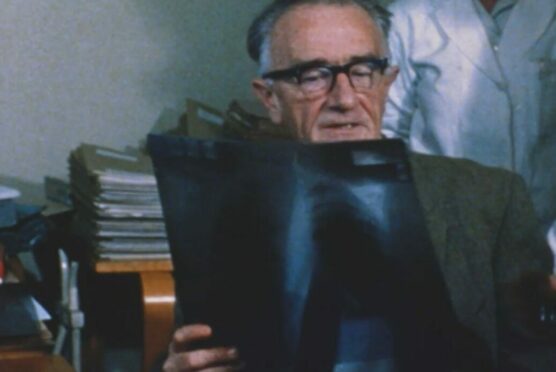
A pioneering Scots doctor and his worldwide legacy has been hailed on the 30th anniversary of the global research network he inspired.
Archie Cochrane is revered by medics around the world as the father of evidence-based medicine.
The Cochrane Collaboration, set up in his memory in 1993, has mushroomed into an international voluntary organisation of almost 80,000 researchers and supporters in 130 countries scrutinising evidence from medical trials to identify the most effective treatments.
In 2021, more than three-quarters of new World Health Organisation guidelines were informed by evidence from Cochrane reviews. Paying tribute to the trailblazing Scot, professor Xavier Bonfill, director of the Iberoamerican Cochrane Centre in Barcelona, told The Sunday Post: “Archie Cochrane is one of the most visionary and influential physicians and health researchers of the 20th Century. In my opinion, he will remain as one of the classic authors of epidemiology, evidence-based medicine and management of and research into health services.”
Cochrane, who died in 1988, was born in 1909 into a mill-owning family in Galashiels.
After boarding school and Cambridge, he studied in Berlin and Vienna. He then enrolled as a medical student in London but with the outbreak of the Spanish Civil War in 1936, he joined the International Brigades fighting General Franco.
As a medical orderly, while on leave in Spain he encountered Ernest Hemingway, who he described as “an alcoholic bore”, in a bar in Madrid and in Barcelona he had a long discussion with a tall Englishman over the progress of the civil war. That man was Eric Blair, aka author George Orwell.
Archie joined the Royal Army Medical Corps in 1939 and was captured in Crete. It was a traumatic time – looking after the sick amid dire shortages of food and medicine.
Back home, in 1945 he spent four weeks recovering in Galashiels. It was a crossroads in his career. He had planned an investigation of tuberculosis in Galashiels, Selkirk, and Hawick but this fell through. Instead, he started a job in South Wales with the Medical Research Council.
The project looked at the diseases that wrecked miners’ lungs. Reliable evidence was important for miners making claims against pit owners.
Around one in 20 miners suffered a disability from working in the pits. It was these men he recruited to help with the study. They were the key to its success, ensuring an astonishing response.
Cochrane followed the research up over 20 years. Its real impact was to demonstrate that epidemiology – looking at the pattern of disease – could be conducted effectively in large-scale field studies as well as the laboratory. In the 1960s, he expanded his questioning to other areas – including use of aspirin to prevent heart attacks and the relative value of specialist coronary care units. There were many other supporters of randomised medical trials but it was Cochrane who crystallised the concept in an influential 1972 book, Effectiveness And Efficiency, which advocated the use of these control trials to make medicine more effective and efficient.
Bonfill said: “Future generations of researchers who want to understand the background of many of the current trends in their fields will have to come back to Archie Cochrane.”

Enjoy the convenience of having The Sunday Post delivered as a digital ePaper straight to your smartphone, tablet or computer.
Subscribe for only £5.49 a month and enjoy all the benefits of the printed paper as a digital replica.
Subscribe